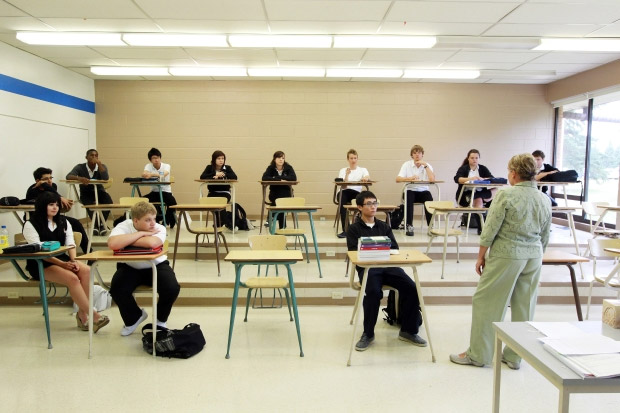Beginning in fall 2013, gender studies will be available as an elective course for grade 11 high school students in Ontario.

Dilani Mohan is the person behind the idea of adding the course to the current curriculum saying gender studies provides young people with valuable tools for their lives.
“Everybody, everybody is going to go through this process of gendering, of learning how they’re supposed to behave and supposed to be,” said Mohan.
Still, she says there is some stigma that this is a course for, or about, girls.
“The misconception is that gender is synonymous with women or girls, which it’s not,” said Mohan.
Despite the name, gender studies also discusses issues of sexuality, race, class, ability, and other elements of personal identity.
Mohan first saw the need for gender studies back when she was in high school, where she witnessed sexist comments, unhealthy relationships, and homophobic bullying on a daily basis.
“We have report after report coming out over the last number of years that point out the levels of gender-based violence that occur in schools,” said Mohan.
She said she hopes gender studies will allow students to engage with and be more proactive in their dealings with different kinds of identities.
- Ontario NDP sets ultimatum for legislature keffiyeh ban, threatening to defy rules
- Muslim human rights activist in need of kidney finds help from Jewish community
- S&P/TSX composite rises, Nasdaq leads Wall St. rally after tech earnings
- Toronto officer charged with perjury, attempt to obstruct justice: police
Tyler Carson, now a women and gender studies major at the University of Toronto, was one of the first students to come out at his high school.
“I had done a lot of thinking about what it means to be gay, but I didn’t do a lot of thinking about what it means to be a gay male, or perhaps what it means to be a gay, white male,” said Carson.
He says it would have been easier for him to be a student leader if he and his classmates had had a safe space in the classroom to have academic discussions about identity.
“Having a course like gender studies in high school would have really allowed me to gain the tools and language to communicate that with peers, my teachers, and my parents.”
Until now, such courses were limited to colleges or universities.
David Johnston, senior manager of support services at the Toronto District School Board, said that leaving this kind of education until university or college is too late.
“We know that we have students until the age of 18, and I think we have a responsibility in those areas to provide some opportunities for them to explore that,” said Johnson.
Johnston says that the teen years are a time of self-discovery, as well as when gender identity and roles are solidified.
“Who they are is a critical question that they need to answer by the time they finish that period.”



Comments